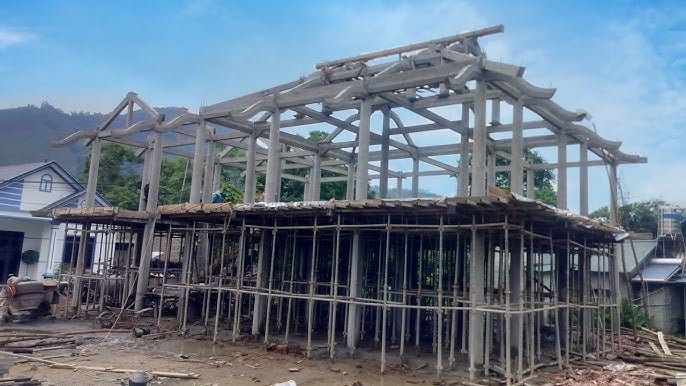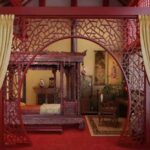The importance of building a house that adheres to Feng Shui principles has been long-standing, even in ancient times. One of the key taboos to avoid is the concept of a “three-legged house,” which can bring turmoil to both the residents and their wealth.

A ‘three-legged’ house often appears temporary and gloomy, impacting the residents’ prosperity and well-being.
A “three-legged house” refers to a poorly constructed home with unstable walls, gates, or partitions. It may have a roof that cannot shield against the elements. Such a house often appears temporary and gloomy, impacting the residents’ prosperity and well-being. Moreover, damp and dark spaces can hinder access to sunlight, severely affecting one’s health.
Additionally, a house that goes against Feng Shui principles may exhibit the following features:
Taboos in House Construction
– Walls: It is crucial to build sturdy walls as weak foundations can invite misfortune and problems, according to Feng Shui.
– Number of Rooms: The number of rooms in a house is believed to impact the family’s wealth. An odd number of rooms is considered auspicious. The ancillary room should never be larger or taller than the main room. The kitchen should not be adjacent to or directly facing the bathroom. Ensure the main entrance does not face the bathroom or kitchen.
– Living Room: The living room should offer a spacious and unobstructed view. If there are two living rooms, one should be larger and located at the front, with the smaller one at the back.
– Bedroom: It is inadvisable to place an altar in the bedroom.
– Kitchen: The stove should not face the water tap directly, nor should it be placed between two taps. Avoid locating the kitchen at the very front or back of the house, near the entrance or exit. The ideal position for the kitchen is at the back of the house.
– Staircase: The number of staircase steps should follow the concept of “birth, old age, sickness, and death.” Ending the staircase on a “birth” step is considered auspicious, while a spiral staircase is not recommended.
– Doors: The main gate and entrance should not be overly large.
– Bathroom and Toilet: Ensure the bathroom and toilet floors are not higher than the bedroom floor. Avoid placing the toilet in the center of the house.

A ‘three-legged house’ can lead to financial losses and a decline in the family’s fortune.
– Roof and Ceiling: Avoid connecting your roof to that of neighboring houses. Ceilings should not display square or straight-lined patterns, images, or paintings. Pointed structures should be avoided when designing a canopy for the front of the house.
Additionally, it is important not to build a house that is too tall, as this can create a sense of instability for the family. Wood with yang energy, such as pine and apricot wood, is preferable to wood with yin energy. Ensure the foundation is level and not bumpy.
This information is for reference only
The Perfect Spot to Place Your Bed: Avoid the Deadly Mistake
Sleeping soundly in your bed, unaware that its placement could be a deadly mistake. It’s time to face the facts: the position of your bed can impact your health and well-being. It’s not just superstition – certain positions can bring bad luck and even danger. It’s crucial to understand these risks and make changes immediately to protect yourself from potential harm.
The Art of Home: Redefining Space and Its Inhabitants
“The allure of owning a grand home is a dream for many. However, as the ancient proverb goes, ‘A big house with few inhabitants becomes a desolate place.’ Why did our ancestors coin this phrase? In truth, this notion has sparked a myriad of joys and sorrows, unions and separations since time immemorial.”
The 4 No-Go Spots to Keep Your Broom in to Ensure Wealth: Sweep Away Bad Luck and Welcome Prosperity
The humble household broom is more than just a cleaning tool; its placement is of utmost importance in the practice of Feng Shui. Superstition dictates that there are certain areas in the home where one must never keep a broom, as doing so could bring about detrimental effects on the homeowner’s fortune and overall well-being.





































